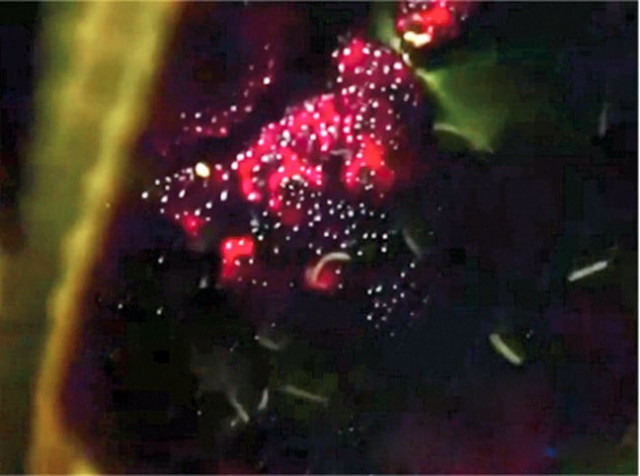Rosy outlook for mulberry trade
Chinese seeds, technologies are helping Pakistan elevate exports

Mulberry is well received in both China and Pakistan. On this kind of fruit that is a little ‘low-key’, unlike mango or cherry, Sino-Pak cooperation is also in progress. Chinese seeds and technologies are helping Pakistan elevate its exports of mulberry products.
Mulberry tree is a ‘versatile’ plant. Besides fruit, mulberry’s leaves, wood, branches and roots all have their own uses. In particular, mulberry leaves are not only raw materials for tea, but also the main source of feed for silkworms.
“Mulberry leaf tea is popular in China, Japan and Thailand. It has anti-cancer properties. It controls blood suga, moderates insulin level and controls blood pressure in our blood system. It is good for liver, too. It is ‘miracle’ tea,” said Ayub Agriculture Research Institute Horticulture Research Institute Principal Scientist Malik Mohsin Abbas.
In Pakistan, fast-growing mulberry trees, from small to medium-sized, are mainly cultivated all over Punjab and Khyber-Pakhtunkhwa.
Pakistan is suitable for developing the mulberry industry especially mulberry tea. Because of the hot climate, it usually takes about merely 10 months for a mulberry tree to grow well. Pakistani people can harvest mulberry leaves several times within a year.
However, not any mulberry leaves can be turned into good tea. The quality of mulberry tea depends on leaf varieties, fresh leaf tenderness, production season and processing technology. Generally speaking, only mulberry leaves and buds of certain varieties and high tenderness can become good mulberry tea. The mature mulberry leaves used for sericulture are not suitable for making tea.
In Pakistan, mulberry seeds are mainly imported. According to Pakistani agricultural expert, Chinese seeds perform better in Pakistan than the ones from some other countries.
“Since 2018, we have got the access from China. Now we are importing mulberry seeds from China. The quality of Chinese seeds is better than Bulgarian ones that we used to import. The output and resistance are better,” said Punjab Forest Department Deputy Director of Sericulture Muhammad Farooq Bhatti.
After years of research, China has successfully bred special mulberry varieties specifically for making tea and developed more advanced processing technology.
“We have carried out some research on mulberry tea, mainly on the influence of processing technology on the content of active ingredients in mulberry tea, and on the selection of mulberry varieties which are suitable for making tea. I think China and Pakistan can cooperate more in this sector,” Lin Tianbao, Director of Research Center at the Institute of Sericulture, Zhejiang Academy of Agricultural Sciences told CEN.
For sericulture, Chinese mulberry seeds and technologies have also been introduced overseas like Uzbekistan to help boost local production.
“The way we work with Uzbekistan also applies to Pakistan,” Lin Tianbao said. “In our cooperation with Uzbekistan, we are responsible for selecting new varieties of excellent mulberries and silkworms that are suitable for cultivation and breeding, as well as providing corresponding supporting techniques.”
Uzbekistan carries out the cultivation and demonstration of mulberry and silkworm varieties according to Pakistan’s requirements, provides test reports in a timely manner and gives feedback on new problems they meet during production.
Pakistan sends relevant scientific and technical personnel to China from time to time every year to provide technical training, demonstration guidance and technical consultation in mulberry planting, new variety demonstration and promotion, silkworm variety test demonstration to quickly solve problems in production.
THE ARTICLE ORIGINALLY APPEARED ON THE CHINA ECONOMIC NET
Published in The Express Tribune, March 27th, 2022.
Like Business on Facebook, follow @TribuneBiz on Twitter to stay informed and join in the conversation.


1733130350-0/Untitled-design-(76)1733130350-0-208x130.webp)
















COMMENTS
Comments are moderated and generally will be posted if they are on-topic and not abusive.
For more information, please see our Comments FAQ